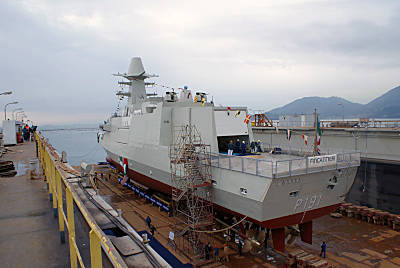NATIONAL HARBOR, Md. — U.S. Transportation Command values commercial industry partners that assist its mission of transporting warfighters and supplies anywhere in the world, U.S. Air Force Gen. Duncan J. McNabb said.
Speaking during the Air Force Association’s 2011 Air & Space Conference and Technology Exposition here yesterday, the Transcom commander said his organization seeks to harness the power of commercial industry to aid the warfighter.
“[We’re using] our commercial industry partners, our civil reserve air fleet, and our maritime U.S. flag fleet,” McNabb said. “[It’s] our ability to mix them in and figure out ways to totally utilize and leverage them to max advantage [that will benefit] both the warfighter and the taxpayer.”
“So that’s what this story is about,” he added. “It really is a great example of an enterprise approach, [and] a great example of using all parts of the total force in ways that have been absolutely complementary, and in many cases, groundbreaking.”
According to McNabb, Transcom has a new component which helps to increase its efficiency alongside Surface Deployment Distribution Command, Military Sealift Command, Air Mobility Command, and its commercial partners.
“I have a new member of the team which is the Joint Enabling Capabilities Command,” he said. “When Joint Forces Command hung up their flag, [U.S. Army] Gen. [Raymond T.] Odierno said: ‘This belongs in Transcom, because of your ability to move out very quickly.’ ”
McNabb said the new component enables Transcom to augment theater combatant commanders by assisting them with lift capability, communications, public affairs and planning.
“From our standpoint, it fit very naturally into what we do, especially in the transportation world,” he added.
McNabb used Afghanistan as an example to highlight the benefits of using commercial industry partnerships.
“Many folks don’t know when we talk about Afghanistan … when you take stuff through the Pakistan locks … that is totally being done by our commercial partners and their relationships and their networks around the world,” he said.
“Think about how hard that is, and you know some of these countries would have a little problem with putting U.S. military boots on the ground,” McNabb pointed out.
“But they have no problem with using our commercial partners and their relationships, because, obviously, it’s good for the economy, and it’s what trade is all about,” he said.
McNabb praised commercial companies for the difference they’ve made through the Northern Distribution Network — air-and-ground transport supply routes that ship supplies through Central Asia to U.S. troops in Afghanistan.
“When we talk about the Northern Distribution Network — and this is all being done commercially — it’s pretty amazing,” he said. “And that’s the power of the great commercial industry.”
“It is a global network,” McNabb added. “One of the things that Transcom has is the authority to use its forces around the world, globally, so it allows us to move very quickly.”
McNabb referred to “dynamic planning” as a critical way of synchronizing the different organizations that are helping Transcom move supplies and equipment around the world.
“We ask them to do stuff that fits right into their model that works very well,” he said. “They can do that [stuff] better than us and so now we’ve figured out ways to bring that all together [through] dynamic planning.”
“That’s what this dynamic planning does,” the general continued. “It takes all of these things and it says, ‘How do we do this without making so much change it become chaos?’ ”
McNabb said he is very committed to his responsibility of ensuring Transcom meets combatant commanders’ logistical needs.
“[Logistics are] the lifeblood of the force, and if you make sure they have the logistics priority out there even in a place like Afghanistan, you give them every advantage to win,” he said.
“And that’s what I promised them,” McNabb said. “I said, ‘my job is to make sure you don’t worry about this. We’ll figure out how to get it there … I don’t want you to think about that.’ ”
The general said he measures Transcom’s success through the eyes of its customers: the warfighters.
“It’s about them, it’s about their plan, and it’s giving them the flexibility they need and make sure they do not worry about this part,” he said.
“At the end of this [supply chain], we know there’s a soldier, sailor, Marine or airman that absolutely depends on this,” McNabb added. “This person is betting that we will be there and we must always, always deliver for them.”
Source:
U.S. Department of Defense
Office of the Assistant Secretary of Defense (Public Affairs)

 von
von 